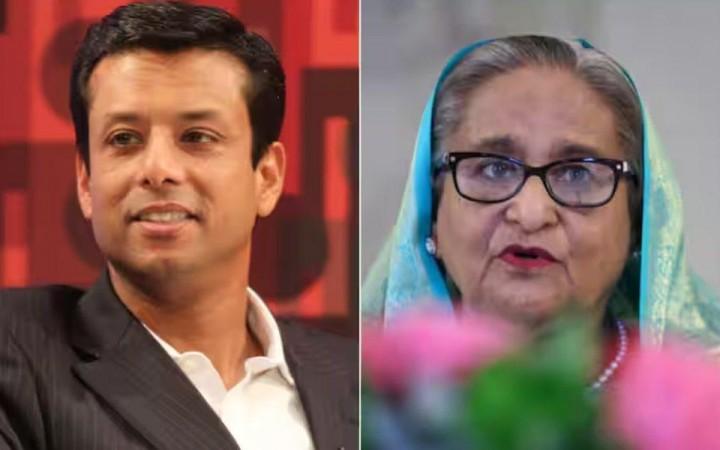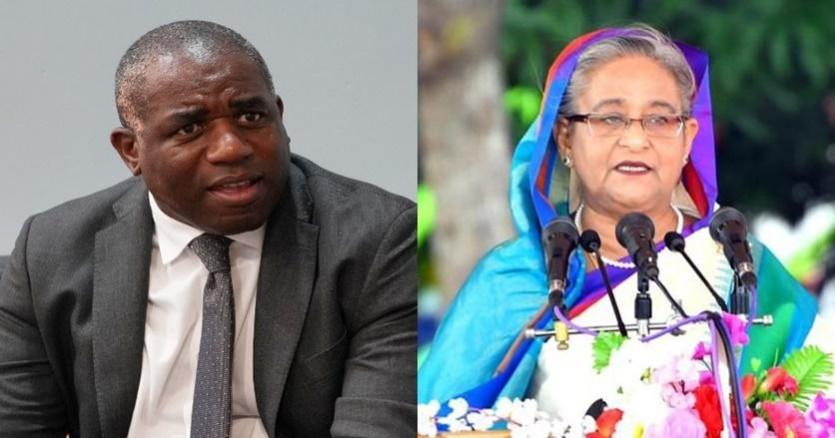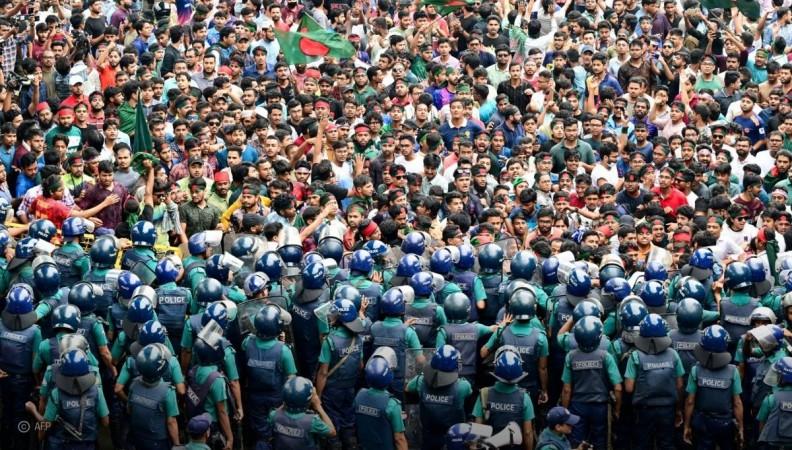
Bangladesh, a nation that has been grappling with a myriad of challenges, is currently in the throes of a political crisis that has sent shockwaves across the globe. The country's former Prime Minister, Sheikh Hasina, has fled to India amidst widespread protests and unrest, marking a significant turning point in the nation's political landscape.
Sheikh Hasina's flight reportedly landed at Hindon airport near Delhi, where she was received by senior Indian Air Force officials and met National Security Advisor Ajit Doval. The former Prime Minister is expected to fly to London, where she has sought political asylum.
This dramatic turn of events was triggered by widespread discontent over a quota system for government jobs, which protesters deemed discriminatory. The system was seen as favoring certain groups over others, leading to massive demonstrations by students and escalating into a broader movement against her government. The government's handling of the protests, including a violent response, further fueled the unrest.
The situation turned so critical that the Bangladesh Army chief announced the formation of an interim government to restore order in the country. This move was made after widespread protests and was aimed at finding a solution to the crisis. The political crisis in Bangladesh has drawn international attention, with the United Nations calling for calm and restraint. India, a key neighbor, has been directly involved, receiving Sheikh Hasina and holding discussions with her at a high level.

The World Bank is evaluating the impact of the crisis on its loan program, highlighting the economic implications. Britain has called for a United Nations-led investigation into the unrest, reflecting international interest in the human rights aspect. These actions demonstrate a mix of diplomatic engagement, humanitarian concern, and the potential for international pressure on resolving the situation peacefully and addressing the underlying issues.
The political crisis comes at a time when Bangladesh is grappling with significant economic challenges. The country is facing a critical situation with inflation and exchange rate volatility. The power sector is struggling with idle power plants due to fuel shortages, despite investments in rental and quick rental power plants. The banking sector is dealing with non-performing loans, and the overall economic growth is being hindered by structural issues and a lack of effective policy implementation.
The education system is also facing challenges, with a misalignment between the curriculum and industry needs. The country is grappling with the aftermath of the COVID-19 pandemic, which has led to a rise in poverty and affected rural incomes. The need for reform, particularly in terms of accountability and governance, is emphasized, as is the importance of adapting to changing global economic conditions and addressing the needs of the population, including food security and job creation.

The political crisis in Bangladesh is a complex issue with deep-rooted causes and far-reaching implications. The departure of Sheikh Hasina and the ensuing unrest have put the country's political stability and economic progress at risk. The international community's response, while varied, underscores the gravity of the situation and the need for a peaceful resolution. As Bangladesh navigates this critical juncture, the lessons from its past and the challenges of its present will undoubtedly shape its future.

















